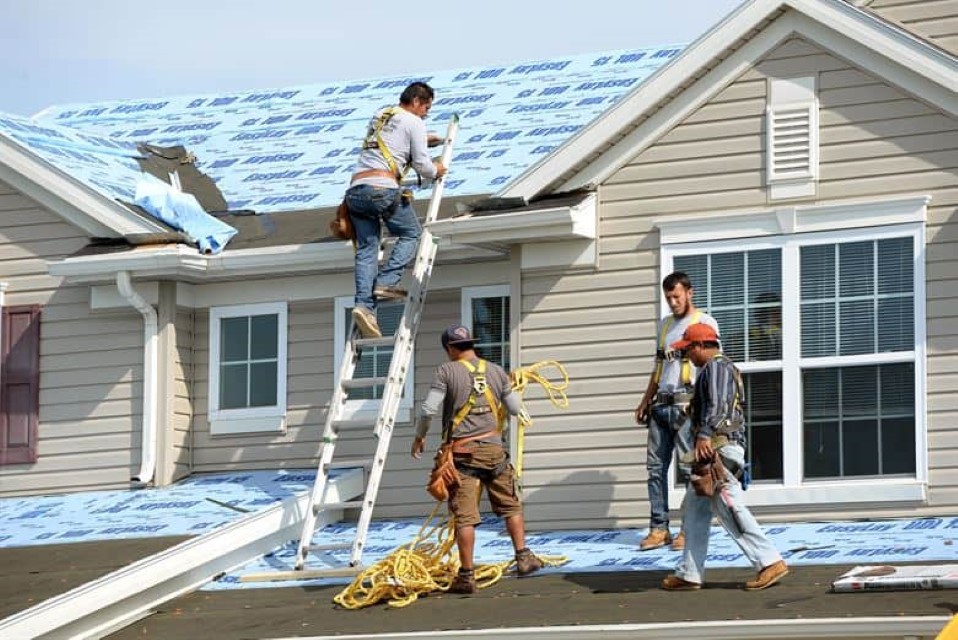Are you thinking about launching your own roofing business? With the construction industry on the rise and the constant demand for roofing services, starting your roofing company can be a lucrative venture. In this comprehensive guide, we’ll take you through the essential steps and considerations to help you start and build a successful roofing business.
1. Understanding the Roofing Industry (NLP Insights)
Before you dive headfirst into starting a roofing business, it’s essential to understand the dynamics of the industry. The roofing industry covers a wide range of services, from residential roof repairs to commercial installations. Research shows that the roofing market has been growing steadily over the past few years, thanks to the increasing need for roof maintenance, repair, and replacement.
2. Conducting Market Research (Related Searches)
One of the first steps in launching your roofing business is to conduct thorough market research. Look into the local demand for roofing services, the competition in your area, and the types of roofing projects that are most in demand. Leveraging related searches such as “roofing business market analysis” can provide valuable insights into your target market.
3. Create a Business Plan
A well-structured business plan is the foundation of any successful business. Your roofing business plan should outline your business goals, target market, competitive analysis, financial projections, and marketing strategy. Having a clear plan will not only guide your business but also make it easier to secure funding from investors or lenders if needed.

4. Legal Requirements and Licensing
Starting a roofing business comes with various legal obligations, which can vary by location. You will likely need to register your business, obtain the necessary permits, and comply with local regulations. Additionally, you may need specific licenses or certifications to operate legally in your area. Be sure to check with your local government or industry associations to understand the requirements.
5. Insurance and Liability
Roofing can be a risky business, and accidents can happen. It’s crucial to invest in the right insurance coverage to protect your business and your clients. Liability insurance, workers’ compensation insurance, and equipment insurance are just a few types to consider. This is not an area to cut corners, as being adequately insured can save you from substantial financial loss in case of unexpected events.
6. Equipment and Tools
Investing in the right equipment and tools is essential for a roofing business. From ladders and safety gear to specialized roofing equipment, having the right tools will ensure the quality and safety of your work. Consider both purchasing and leasing options, and always keep equipment maintenance in mind to ensure longevity.
7. Hiring Skilled Roofers
Your roofing business’s reputation will largely depend on the quality of work you provide. Hiring skilled and experienced roofers is crucial. Ensure that your team is well-trained, licensed, and insured. A skilled workforce not only ensures quality work but also helps you build a positive reputation in the industry.

8. Marketing and Branding
To stand out in a competitive market, you need a strong marketing and branding strategy. Use your business plan as a foundation and create a professional brand image, including a memorable logo and a user-friendly website. Invest in online and offline marketing efforts to reach your target audience effectively.
9. Pricing Strategy
Setting the right pricing for your roofing services is a delicate balance. You’ll need to cover your costs and generate a profit while remaining competitive. Research local pricing standards and analyze your costs to determine a pricing strategy that works for your business. It’s also a good idea to offer free quotes to potential customers.
10. Customer Relationship Management
Excellent customer service is key to success in the roofing industry. Building strong relationships with your clients can lead to repeat business and referrals. Communication, reliability, and a customer-centric approach should be at the core of your business model.
How much does it cost to start a roofing business? The initial investment required to start a roofing business can vary widely depending on factors like location, equipment, and insurance. On average, you might need anywhere from $10,000 to $50,000 or more to get started.
Do I need prior experience in roofing to start a business? While prior experience in roofing can be beneficial, it’s not always necessary. You can hire experienced roofers to work for your business, but having a basic understanding of the industry is advantageous.
How long does it take to establish a profitable roofing business? The timeline for profitability can vary, but it often takes a few years for a roofing business to become consistently profitable. Building a strong reputation, customer base, and efficient operations takes time.
How can I find clients for my roofing business? Marketing, word-of-mouth referrals, and online presence are all effective ways to find clients. Networking with local contractors and real estate professionals can also help you establish a client base.
Conclusion
Starting a roofing business can be a rewarding venture if you approach it with the right strategy and mindset. Understanding the industry, conducting thorough research, and following the necessary legal requirements are crucial first steps. With a well-thought-out business plan, skilled team, and effective marketing, you can establish a roofing business that thrives in the competitive market. Keep in mind that success may not come overnight, but with dedication and hard work, your roofing business can become a profitable and reputable venture in your local community.

